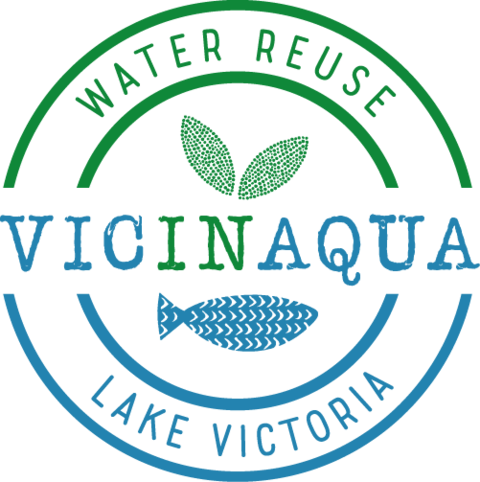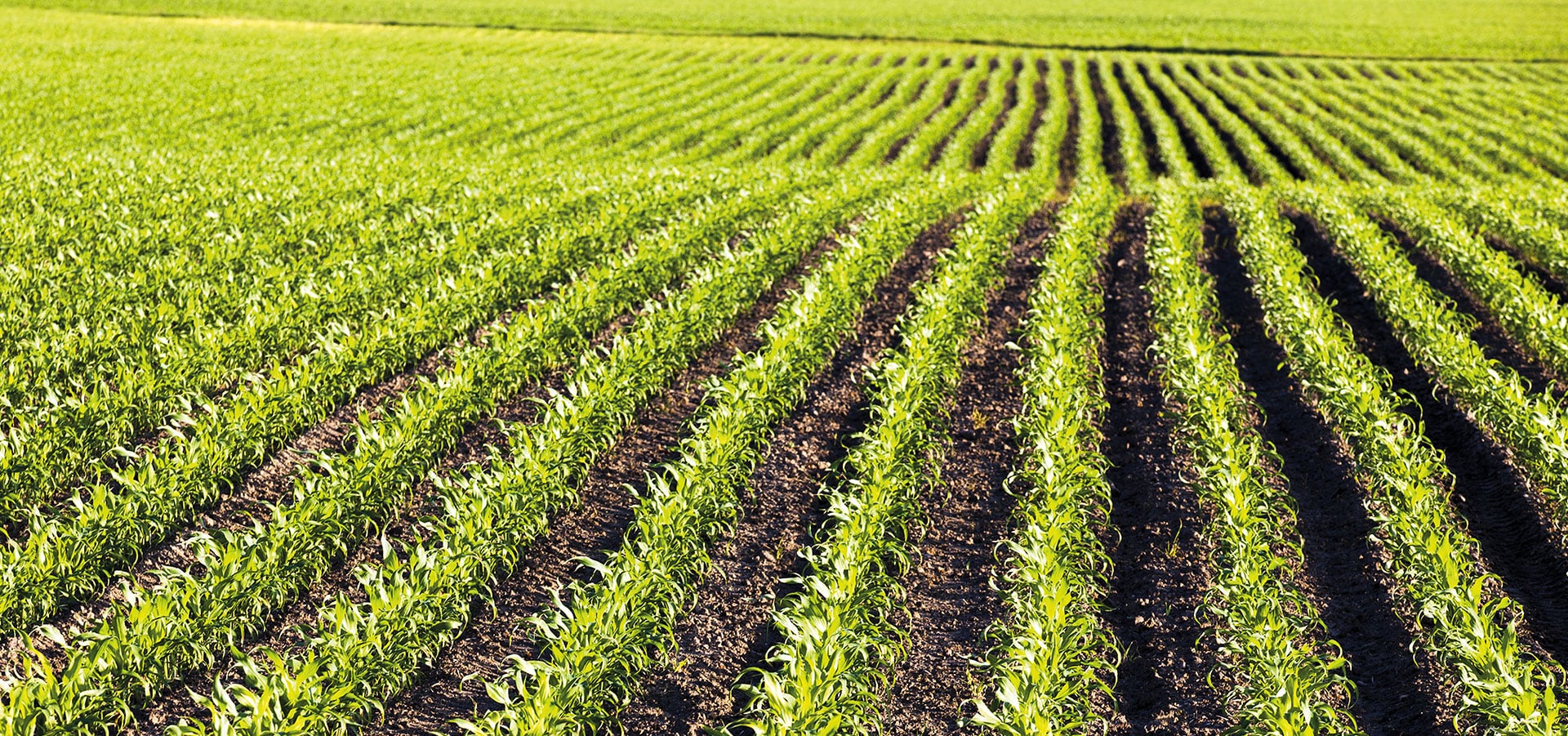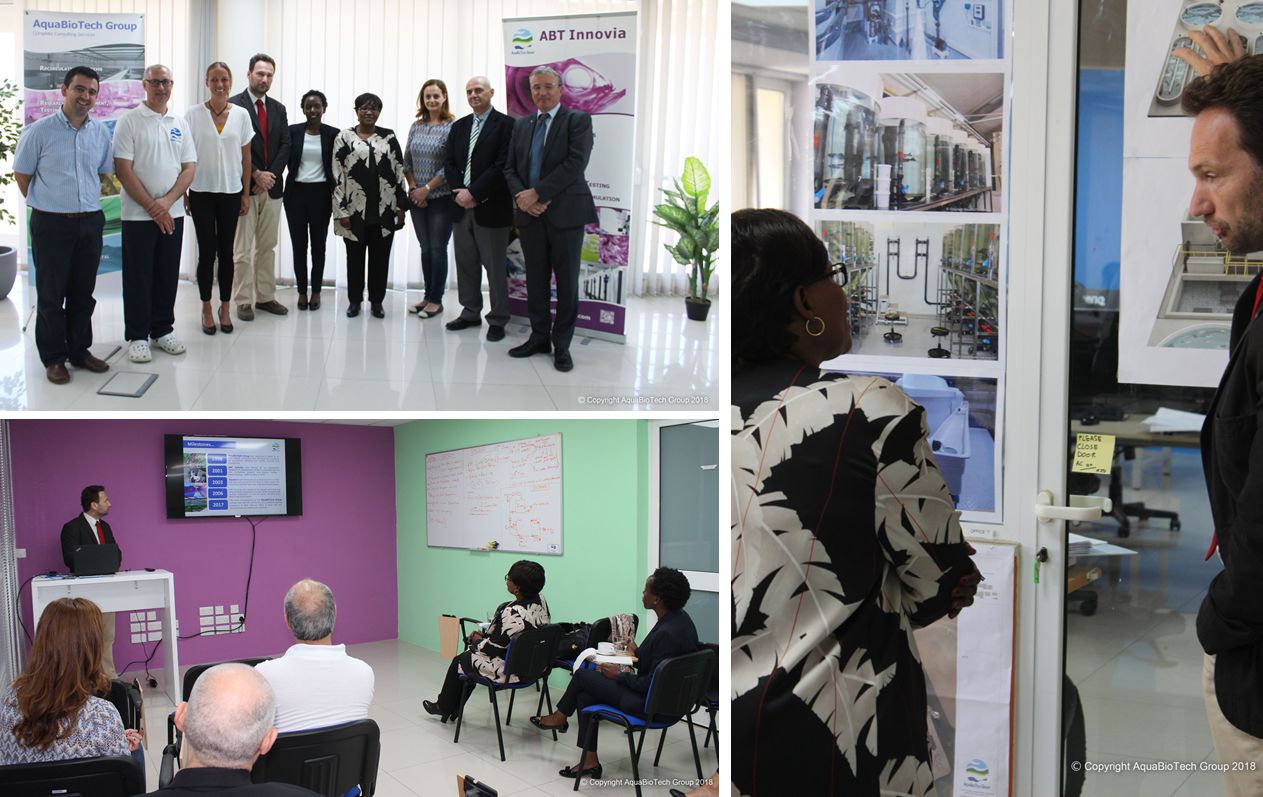Discussing novel solutions for eco-friendly wastewater treatment and reuse in aquaculture and irrigation with involvement of local population and stakeholders
Started in June 2016, the EU-African project VicInAqua is developing an efficient, flexible and robust system for wastewater treatment and reuse in Lake Victoria Basin, Africa. Eleven industrial, research and public organisations from Denmark, Germany, Italy, Kenya, Malta (AquaBioTech Group), Tanzania and Uganda conceived the VicInAqua novel solutions as a tailor-made response to the growing needs for sanitation and water and food supply of local inhabitants and industries, reducing stress on the sensitive ecosystems of Lake Victoria. The project is coordinated by Karlsruhe University of Applied Sciences in Germany and has received funding from the European Union’s Horizon 2020 research and innovation programme under grant agreement No 689427.
The AquaBioTech group brings in its vast expertise as international aquaculture, fisheries, and marine consultancy and engineering company engaged in various projects worldwide. On 28 May, the Maltese company welcomed Ms. Harriet M. Nduma, Chargé D'Affaires a.i. of the Kenyan Embassy in Rome, in its premises of Mosta to present the collaborative project and discuss the chances it offers to Kenya and its neighbouring countries, Tanzania and Uganda.
VicInAqua follows an integrated approach to develop a sustainable combined wastewater treatment and recirculating aquaculture system (RAS) for water reuse – for example in agriculture – and an aquaculture industry of higher quality in Victoria Lake Basin. The VicInAqua wastewater treatment unit mainly consists of a novel membrane bioreactor (MBR) with self-cleaning parts avoiding biofouling and the use of chemicals. The filtered, nutrient rich effluent water coming out of the MBR flows into the RAS and the surplus can be used for irrigation. The remaining sludge from the filter system is co-digested with local organic waste to produce biogas. This biogas, together with advanced photovoltaic panels, provides for decentral electricity supply. A remote, easy to operate monitoring system enables to control the pilot also with a smartphone.
VicInAqua also promotes sound approaches to water management, taking into consideration broader socio-economic factors and fomenting job creation and greater gender balance in decision-making. The technological development and demonstration at pilot scale is combined with participative measures to raise awareness among the local population and achieve an efficient capacity building of local companies, entrepreneurs and policy-makers.
Chargé D'Affaires a.i. Harriet M. Nduma expressed her appreciation for the project noting that VicInAqua would not only have a positive socio-economic and environmental impact on the local communities in Kenya but also on the neighbouring countries since Lake Victoria is a shared resource. She asked about the level of involvement of Kenyans, stressing that local involvement would ensure ownership and sustainability of the project. Ms. Nduma also assured of the Embassy's support in facilitating the work of VicInAqua for the mutual benefit of Kenya and Malta.
The project partners have now started to build a pilot site in the city of Kisumu, Kenya. It will produce high quality fingerlings of the local fish species Tilapia to supply the pond aquaculture of the area with stocking material. The pilot should be finished and inaugurated this year in November and will be further operated by project partner DALF (Department of Agriculture, Livestock and Fisheries of Kisumu County, Kenya) after project end.



